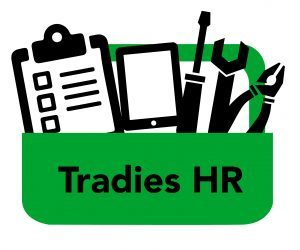
23 Mar GUEST BLOG – CORONAVIRUS FAQs FOR EMPLOYERS
Our directory partner Karen Hillen from Tradies HR has covered some Coronavirus FAQs for employers below.
Information current as at 21 March 2020
Information from the relevant government agencies is being updated regularly, please keep checking the government information regularly)
Each business and its circumstances will be different.
This is only a guide. You need to understand all of your options and decide what is the right decision to make for you, your employees and your business.
This is for information purposes only. It is not legal advice.
Link to the latest Health Department information in relation to the Coronavirus (please check this information as it is being updated regularly):
https://www.health.gov.au/news/health-alerts/novel-coronavirus-2019-ncov-health-alert
Link to information on the Fair Work Ombudsman website (please check this information as it is being updated regularly):
Where can I get information on health and safety in the workplace?
Information about workplace entitlements such as taking sick, personal/carer’s & annual leave can be found on the Fair Work website: https://www.fairwork.gov.au/leave.
For information about health and safety in the workplace, including legal obligations of employers and employees, the following government websites:
- the Australian Government Department of Health – for the latest information and advice about coronavirus
- your State or Territory Public Health Unit’s website – for local coronavirus response activities and advice
- Safe Work Australia – for information and referrals about managing the risks of contracting coronavirus in the workplace
- your State or Territory workplace health and safety body – who can also assist with workers compensation enquiries
- Comcare (Commonwealth) – for Australian Government employees and for employees of organisations which self-insure under the scheme
- Smart Traveller’s webpage on coronavirus
- Office of the Australian Information Commissioner (OAIC) – for information onprivacy obligations for private sector employers (including health sector providers) relating to coronavirus.
What should I tell my employees?
Talk to them daily and keep them updated on how things are going. Also, make sure they are OK.
If I have an employee who has been overseas is self-isolating for 14 days in accordance with the self-isolation rules, do I have to pay them?
No, you’re not required to pay employees in these circumstances.
In most of these situations, the employee is not sick, so they’re not eligible for personal/carer’s leave.
You could choose to agree to allow the employee to use their annual leave or long service leave for the period they need to stay off work or if possible, they may be able to work from home.
What if my employee has called in sick – do I have to pay them?
Normal rules still apply when an employee is sick and if you have a Leave policy, the normal conditions according to your Leave policy will apply. Whether they have an injury, a cold, the flu or are diagnosed with COVID-19, they will still be entitled to paid personal carer’s leave if they are permanent employees.
If they run out of paid personal leave, it will be without pay or they may ask to be paid annual leave, if they have annual leave accrued.
What about casual employees and independent contractors?
Casual employees don’t have paid sick or carer’s leave entitlements under the National Employment Standards and usually are not entitled to be paid when they don’t work
Independent contractors are not employees and don’t have paid leave entitlements under the Fair Work Act.
What should I do if my employee asks to leave work early to pick up their partner or child who has been sent home suspected of having COVID-19? Or if an employee needs to look after someone that is ill with COVID-19?
This is like any other request from an employee to urgently assist a partner or family member. If the employee is asking for leave because they are required to provide care or support to their partner or family member, then they may take carer’s leave. Where an employee qualifies for carer’s leave, this comes out of their accrued paid personal/carer’s leave as it would in any other similar situation.
An ‘immediate family member’ is a spouse or former spouse, de facto partner or former de facto partner, child, parent, grandparent, grandchild, sibling; or a child, parent, grandparent, grandchild or sibling of the employee’s spouse or de facto partner.
You can ask for reasonable evidence to justify the absence on carer’s leave and this is something that you should have in a Leave policy.
If my employee’s children’s school is closed, can my employee claim carer’s leave to look after their children?
Yes, an employee can take carer’s leave to provide care or support to an immediate family or household member, where the care or support is required because of an unexpected emergency.
The closure of a school in the current climate will amount to an unexpected emergency. Where an employee qualifies for carer’s leave, they may access their accrued paid personal/carer’s leave.
This won’t apply to the school holidays, employees would need to make arrangements as they would under normal circumstances.
If my business starts to slow down can I make employees take annual leave?
You can’t make employees take annual leave but you and your employees may agree to this as a sensible option in this situation. Most Awards enable employers to direct employees to take annual leave if their balance is ‘excessive’. Check the relevant modern award or enterprise agreement and follow what it stated. For example, most Modern Awards will state that an employee is considered to have an excessive leave balance if they have accrued more than 8 weeks.
Check the Award for the process you need to follow.
If things get bad can I shut my business down and not pay my employees for a period of time?
Where an employee or group of employees can’t be usefully employed for a period of time because of a stoppage of work for which the employer cannot reasonably be held responsible, then you may ‘stand down’ that employee or group of employees for that period without pay.
This is usually seen as a last resort.
Employers usually exhaust employees taking available paid leave such as annual leave before considering standing down without pay and as with many other COVID-19 related decisions you should consider balancing affordability, culture and engagement with the law before deciding what to do.
Natural disasters and pandemics, such as the current COVID-19 pandemic, can place businesses in circumstances where they are unable to usefully employ an employee or group of employees.
So, you need to ask yourself:
- Is there a stoppage of work?
- Is it for a reason reasonably outside your control?
- Can the affected employees be employed to perform useful work?You can’t stand down employees if there is still useful work available for them to do. Useful work does not have to be the work that the employee ordinarily performs but needs to be genuine productive work and not made up work.Some examples of when employers may be able to stand down employees include:
- if there was an enforceable government order or direction requiring the business to close (which means there is no work at all for the employees to do, even from another location)
- if a large proportion of the workforce was required to self-quarantine with the result that no useful work was able to be performed in the business by the remaining employees/workforce
- if there was a stoppage of work due to lack of supply for which the employer could not be held responsible.
If things get bad do the normal rules on redundancy still apply during the COVID-19 pandemic?
Yes.If redundancies are required, normal redundancy processes apply. Make sure you are aware of any Award specific requirements in relation to redundancy (e.g. some Awards have extra redundancy provisions that overrule the Fair Work rules in relation to small businesses).
-
- The business must no longer require the person’s job to be performed by anyone because of changes in operational requirements.
- The business must consult with any employees who are covered by a modern award or enterprise agreement (in accordance with the relevant consultation provision).
- It must not have been reasonable in all the circumstances for the person to be redeployed within the business or an associated entity.Redundancy pay, notice of termination (or payment in lieu); and any other statutory or contractual entitlements will still apply.
Can I reduce the hours my casual employees are working?
Yes. This is just like any other situation where there’s no work for a casual employee. Every situation is going to be different so you will need to assess all of your options. There may be some situations where casual employees that have been working very regular hours may be regarded as permanent employees by Fair Work.
Can I direct my employees not to come to work?
Where an employer directs a full-time or part-time employee not to work due to workplace health and safety risks but the employee is ready, willing and able to work, the employee is generally entitled to be paid while the direction applies.
However, if an employee cannot work because they’re subject to an enforceable government order or direction requiring them to self-quarantine, the employee isn’t ordinarily entitled to be paid (unless they use leave entitlements).
Can I ask my employees to consider other arrangements, like working part-time or taking leave without pay, as an alternative to redundancy?
Yes, you may ask your employees to consider these arrangements, but they have to volunteer or make an agreement, it can’t be something you enforce on them.
Explain the situation, including that you’re looking for as many alternatives as you can to ensure the viability of the business longer term.
Depending on the arrangements made, this would require a formal variation to their employment contracts, or something clearly stated in writing.
If my employees go to client sites what precautions should I take?
You have a duty of care to ensure that your employees are safe on your client’s site in all situations, just the same as at your own workplace.
In the context of COVID-19 this should involve you making enquiries about the protocols adopted by the client and also having your own protocols, policies and processes.
This should include understanding what the client is doing in relation to self-isolation, cleaning, sanitisation, hygiene and personal protective equipment (if required).
Can I direct my employees not to travel?
You can direct employees not to undertake work-related travel if this is necessary to meet workplace health and safety obligations or is otherwise a lawful and reasonable direction.
It’s unlikely you are able to direct an employee not to undertake private travel. But, if they do and are subject to self-isolation requirements when they return, they will need to take extra leave to cover the period of self-isolation.
What other things can I consider for my employees?
Split rosters, if possible.
Keep working teams consistent to reduce who is working together at any one time.
Can any of your employees work from home?
Meet with customers or clients via Zoom if possible.
Ask employees if they want to take leave, reduce hours temporarily, or if they have any other ideas.
Can employees car pool instead of using public transport?
Consider providing lunch, organising food deliveries, anything that may help employees limit visiting shopping centres and supermarkets if they are concerned about these things.
Changing working hours if possible – starting and finishing earlier or later to avoid peak hour.
If you’d like to contact Karen for further information, you can contact here here:

Website: www.tradieshr.com.au

Sorry, the comment form is closed at this time.